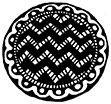What happened to the Marxists?! Well, as we move into a more strictly economic and political realm, I will start with a lovely little clip:
[youtube=http://www.youtube.com/watch?v=JvKIWjnEPNY]
I think Hayek would agree that “you can’t expect to wield supreme executive power just ’cause some watery tart threw a sword at you.” Power comes from delineations in the “Rule of the Law,” not “because some moistened bint had lobbed a scimitar” at you.
Now, as for the peasants’ ideas of an autonomous collective . . . I’m not sure how Hayek would feel about that. He offers an interesting position in the context of contemporary politics. I suppose he would be categorized as a “libertarian” or something similar. Why an interesting position? In a world that sees “capitalism” as the creation and structure of “the Man,” Hayek sees it as ultimate freedom and democracy. He spends a great deal of time referencing leaders who abused the democratic system to create arbitrary plans, including Hitler (BIG name to bring up).
For all his cries of freedom, however, Hayek seems to ignore the effects of the accumulation of money in terms of power. He seems convinced that a system under the “Rule of Law,” without distribution of wealth or jobs, is more free and more fair (impartial since there are not decisions based on status, position, or particular situation) than a system that is regulated through interventions by a central authority. He explicitly states his disdain for control of the economic system: “. . . if we face a monopolist we are at his mercy. And an authority directing the whole economic system would be the most power monopolist conceivable” (92). Despite the talk of freeing the system, he seems to disregard the fact that an unregulated capitalism can (and does; and has) lead to monopolies and the exploitation, or at least control, of those unable to rise in economic position.
In what Edward Luttwack calls “turbocapitalism,” unregulated businesses buy out mom-and-pop shops and other businesses , consolidating, merging, and creating mega-companies that drive prices and put even more competition out of business. Could unregulated capitalism theoretically lead to an economy driven by monopolies (small groups setting prices, thus putting themselves in power)? If this were the case, what would Hayek say? In his own words, “Economic control is not merely control of a sector of human life which can be separated from the rest; it is the control of the means for all our ends” (92). It seems that a fully “free” economy could lead, still, to control by a few–and therefore monopolistic control of all of our ends.
Hayek also reveals some naivete in his notion of choices, claiming that it is sufficient for people to have a theoretical choice; a free, unregulated economy, however can result in powerful economic groups running over or exploiting underpriveleged groups. Formally, by law, (de jure) they may have choice; however, realistically (de facto) they are subject to the powers of larger social/economic forces. Companies try very hard to keep prices down to the advantage of consumers who want a great deal of choices. The unfortunate result is often the exploitation of workers (reduction of salaries) and use of cheap labor. Many of these laborers lack the necessary funds for an education, and therefore have no means of “moving up” past laborer/industrial jobs. They may take the best job available to them, and companies may take advantage of the fact that it’s all they have.
Overall, Hayek has some bold and interesting ideas, and even makes some valid points on the failings of socialism and problems with leaders in democracies creating arbitrary laws to turn the government totalitarian. He ignores one too many problems, however, in his argument. More accurately, Hayek seems to ignore reality and the many fallacies that result from human flaws and errors.
[Source: Hayek, Friedrich A. Road to Serfdom. Chicago: University of Chicago Press, 1944. Print.]

